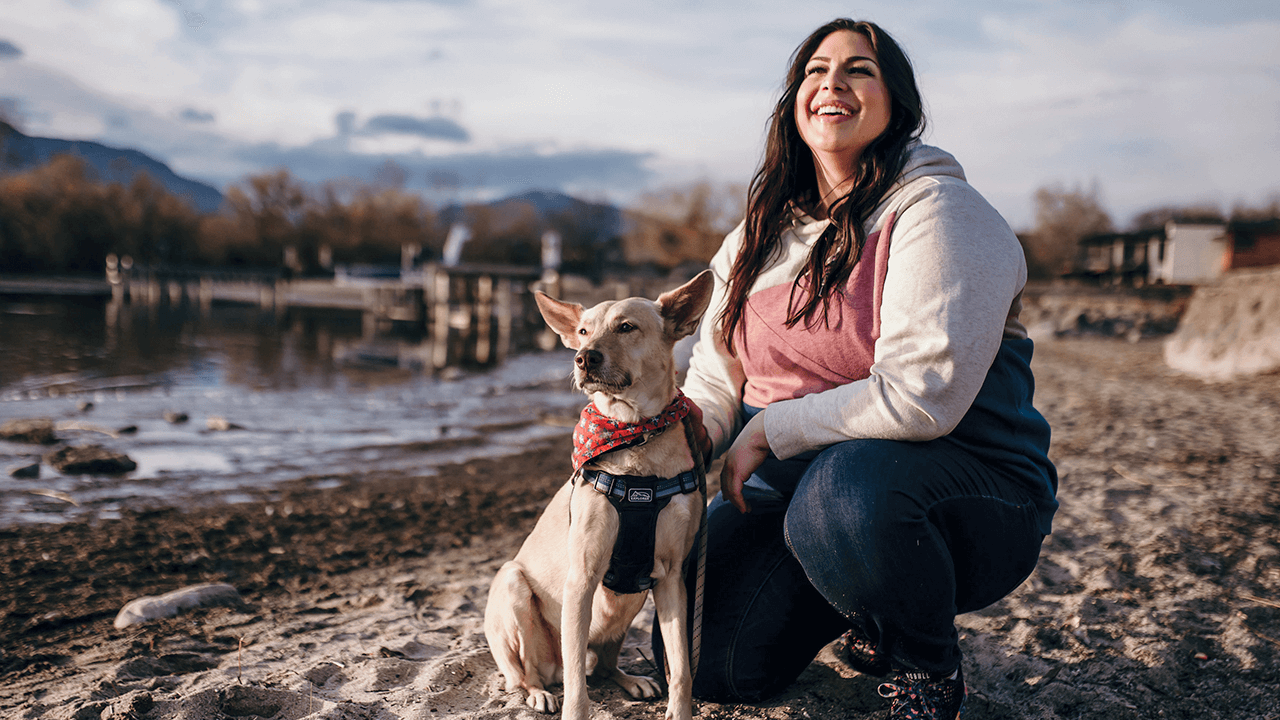Actively healing from the effects of trauma
Aniko Farkas became a social worker out of her deep-seated desire to help people.
By Tiffany Sloan
A sociable, charismatic 34-year-old, she loves her work in both hospital and community settings, embracing both the challenges and rewards of supporting those with physical and psychological injuries. She never imagined she might one day need to call on the kinds of supports she was used to providing for others.
That changed dramatically in August 2020, when Aniko witnessed a traumatic incident in the course of her job. She kept working until January 2021, when it became clear she could not continue. "Originally when I went off work it was for three weeks," she says. "I couldn't have predicted then what the next year would look like."
For the first two months, Aniko was exhausted, sleeping up to 20 hours a day. That turned into crippling anxiety, with daily panic attacks, nausea, and an overwhelming fear of leaving the house. Her cognition was also affected — she was unable to read or retain information.
Aniko was diagnosed with post-traumatic stress disorder (PTSD) with derealization — a state of mind where you feel disconnected from your surroundings and the people you care about. "I experienced dissociation on and off for months," she explains. "I'd drive to the store and sit in the car to try to be normal, try to be a part of the world. But I wasn't in it, thinking ‘how do I interact with this world I see?'"
The turning point for Aniko came when WorkSafeBC connected her with an occupational therapist. They started slow, gradually building structure back into Aniko's days one small block at a time. She also worked with a rehabilitation assistant, who helped Aniko further repair the broken connection between her body and her brain, and a clinical counsellor.
As her health improved, Aniko and her occupational therapist turned their focus to returning to work, helping Aniko rebuild confidence in her clinical skills and providing her with the knowledge and tools to manage physiological warning signs.
Learning strategies for healing
One of the things that returning workers need to do is practise the strategies they're given, explains Christine Johnson, Aniko's case manager at WorkSafeBC. "With a physical injury, you're typically given physio exercises to practise to help you heal. Similarly, with a psychological injury, you learn grounding strategies to use if you experience a triggering incident. Developing a graduated return-to-work plan is about making sure you can implement those strategies while working day to day and being a productive employee."
In Aniko's case, that meant working as a supernumerary worker and gradually increasing her hours over her first few weeks back on the job. "I was kind of like an extra, shadowing for those six weeks, and that made me feel a little bit safer."
This is common with safety-sensitive work, says Christine, and allowed Aniko the opportunity to step away at any time to use her grounding strategies without a risk to anyone's safety. WorkSafeBC paid her wages, Aniko's employer benefitted from her knowledge and skills, and Aniko had the opportunity to regain her confidence before taking on the responsibility of regular duties.
That was key for Aniko. "Having been off so long, I doubted my skills a lot — I had imposter syndrome going back. I was also really nervous: Would being in that environment shake me? Would my anxiety take over again? So being able to just observe if I wanted to, it was really helpful to know the pressure wasn't on me. If I had to say, ‘I have to step out right now,' I knew I could."
Moving forward in recovery
Aniko describes the first couple weeks of her graduated return to work as a "shock to the system," but says things slowly began to fit into place through exposure and routine. She practised her grounding strategies, took breaks when she felt overwhelmed, and used what she'd learned in counselling and occupational therapy to work through her fear and anxiety. After six weeks of supernumerary shifts, she returned to regular full-time duties in June 2022 —17 months after she originally went off work.
Today, she is proud of how far she's come and credits her recovery to an amazing team of health practitioners alongside steadfastly supportive friends and family. This fall, she is realizing a dream by attending the Master of Social Work graduate program at Halifax's Dalhousie University.
"So much of my identity is wrapped up in my work and what I do. I don't think I'd ever find anything else I could be this passionate about," says Aniko. "So I knew I had to do whatever it took to be able to go back."
This information originally appeared in the Fall 2023 issue of WorkSafe Magazine. To read more or to subscribe, visit WorkSafe Magazine.

